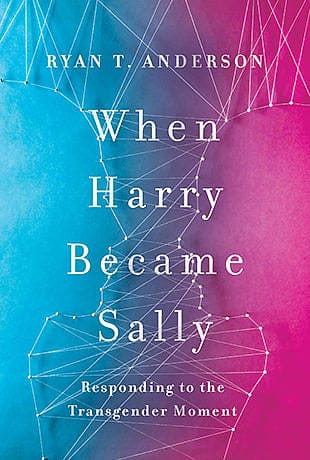Book Review: ‘When Harry Became Sally’

When Harry Became Sally: Responding to the Transgender Moment
By Ryan T. Anderson
Encounter Books
February 2018
Most of us have seen the 1989 movie When Harry Met Sally – the delightful if prurient comedy (starring Billy Crystal and Meg Ryan) about a friendship which develops into a love affair. Ryan Anderson adapts the movie title in his new book that addresses the transgender moment in North America. And he does a brilliant job. It is a book of common sense in the midst of a tidal wave of propaganda about gender, and every key premise and statement in the book is backed by 28 pages of endnotes.
